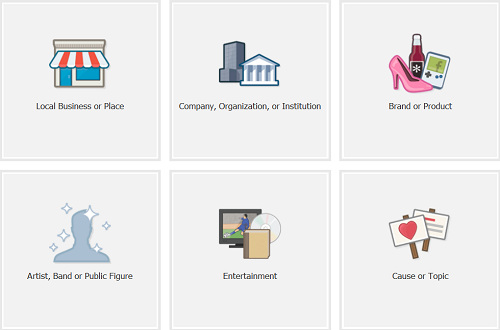Last week Facebook made some impressive changes to its Brand pages, giving both social media geeks and business owners something to get excited about. Many of the changes will provide brands an opportunity to interact on Facebook in ways that were previously unavailable. For example, with brands now having their own identity on the site, it opens doors for business owners to interact as the brand itself, not just a representative of the brand. With the changes comes a new excitement over Pages and, in the end, likely more users.
If you’re a business owners now heading to Facebook to claim your territory or even if you’re one who’s been there for a while, below are some common Facebook mistakes you’d be wise to avoid. Just a friendly reminder from us.
Mistake: Creating a Profile Page instead of a Brand Page
Because Facebook was created on personal profiles, many business owners still think a profile is what they need to promote their business. But it’s not. If you identify with any of the following, you’ll want to create a Facebook Page, not a Facebook profile.

I noticed this mistake a lot while doing competitive research for a political candidate recently. Several of the candidates had personal profiles instead of built out pages. The problem there is that it’s extremely limiting in the features available. Facebook profiles have friend caps, require you to manually approve friends, and are closed off from the rest of the Web. Brand pages, on the other hand, are open, media rich and allow anyone (and as many anyones) to like and promote the brand. Unless you’re creating a Facebook account solely for yourself with no business intent, use a Brand page, not a profile.
Mistake: Cutting Off Wall Interaction
You’re on Facebook to create a hub of interaction between you and potential customers. To do that, you need to let them speak and interact with you. You cannot enter social media and then attempt to hide by turning off your wall functionality.
Don’t get me wrong, I understand the appeal. A lot of people prefer to talk to an audience that can’t talk back. But that’s not social media and it’s counterproductive. If you want a social presence, allow yourself to be social. Let people post on your wall, let them respond to what you’re saying, maybe even let them upload their own content. The more you get them talking to you and to each other, the greater the experience you’ll be able to create and the more your brand will benefit.
Mistake: Interacting Without A Plan
Social media is informal. But that doesn’t mean it’s so informal you don’t have to plan for it or that you can pop in and out of Facebook at whim. You need to create a social media plan that will dictate the types of content and conversations you’ll be using Facebook to push. Once you know what you’re hoping to get out of it, structure content around it. Know how often you should be posting, what days of the week get the most activity, and the types of material that people like to share. For example, in his Science of Facebook Marketing presentation, HubSpot scientist Dan Zarrella found that weekends are most friendly for Facebook sharing and that users prefer video more than Twitter users do. This is all important to know because it can help you plot your course.
Mistake: Leaving Your Page For Death
You know other reason it’s good to have a plan for your interactions? Because when you leave it to chance, it tends not to get done. And then your page dies a pathetic social media death.
On Facebook, regular interaction is even more important because of the EdgeRank algorithm that determines what content is shown and what gets ignored. Everything you put out receives a quality score. If you have a low post quality score – meaning people don’t tend to comment on your posts, they don’t get liked/shared — then your content won’t make it into a user’s News Feed. Because of that, it’s really important that you’re using Facebook to share engagement-worthy content.
Mistake: Being Argumentative
Never resort to fighting with your fans on Facebook. I know. You’re thinking what business in their right mind would get into public arguments with their customers? Who does that? Well, Nestle did. Cooks Source Magazine did. And they’re not alone. However, you can be smarter than all of them. Crazy bully isn’t a long-term business strategy, so instead you need to learn how to respond to negative reviews and comments.
Mistake: Being Boring
You know what’s a really sucky Facebook strategy? Doing the same thing on Facebook every day. As a small business owner you can use Facebook to poll your audience, ask questions, post pictures, upload video, have contests, get people to check into your business, create Facebook deals, and to BE PERSONABLE – why wouldn’t you take advantage of every part of that? Get creative. When you post the same type of content or indulge in the same kind of interactions, you make it really easy for people to scan over you. Again, that’s going to affect your TrustRank score and whether or not you appear in a users Feed.
Below are six very common Facebook marketing mistakes that I see a lot of businesses make. What irks you? Or what mistakes have you learned from?


